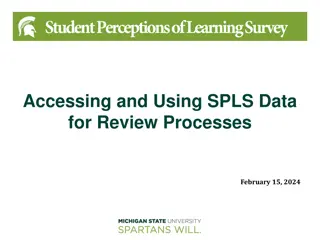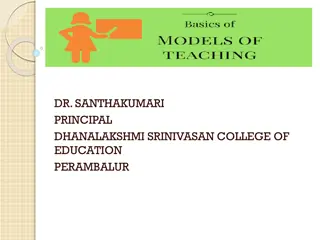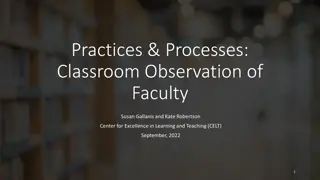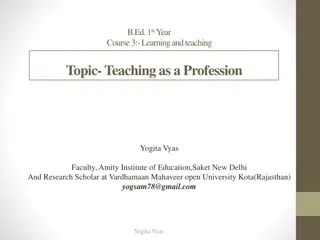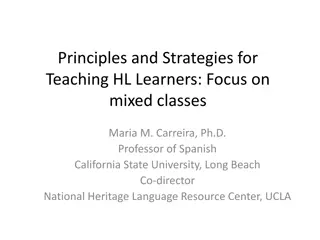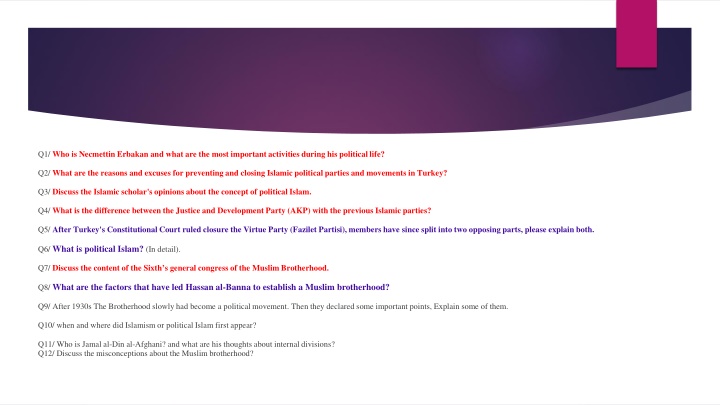
Political Islam in Turkey: Necmettin Erbakan's Influence and Legacy
Explore the rise of Political Islam in Turkey through the influential figure of Necmettin Erbakan, who founded Islamist parties and championed Islamic principles in the country's political landscape over several decades. Learn about the evolution of Islamic movements, Erbakan's contributions, and the unique context of Political Islam in Turkey.
Download Presentation

Please find below an Image/Link to download the presentation.
The content on the website is provided AS IS for your information and personal use only. It may not be sold, licensed, or shared on other websites without obtaining consent from the author. If you encounter any issues during the download, it is possible that the publisher has removed the file from their server.
You are allowed to download the files provided on this website for personal or commercial use, subject to the condition that they are used lawfully. All files are the property of their respective owners.
The content on the website is provided AS IS for your information and personal use only. It may not be sold, licensed, or shared on other websites without obtaining consent from the author.
E N D
Presentation Transcript
Q1/ Who is Necmettin Erbakan and what are the most important activities during his political life? Q2/ What are the reasons and excuses for preventing and closing Islamic political parties and movements in Turkey? Q3/ Discuss the Islamic scholar's opinions about the concept of political Islam. Q4/ What is the difference between the Justice and Development Party (AKP) with the previous Islamic parties? Q5/ After Turkey's Constitutional Court ruled closure the Virtue Party (Fazilet Partisi), members have since split into two opposing parts, please explain both. Q6/ What is political Islam? (In detail). Q7/ Discuss the content of the Sixth s general congress of the Muslim Brotherhood. Q8/ What are the factors that have led Hassan al-Banna to establish a Muslim brotherhood? Q9/ After 1930s The Brotherhood slowly had become a political movement. Then they declared some important points, Explain some of them. Q10/ when and where did Islamism or political Islam first appear? Q11/ Who is Jamal al-Din al-Afghani? and what are his thoughts about internal divisions? Q12/ Discuss the misconceptions about the Muslim brotherhood?
Question Bank Q1/Talk about the National Order Party (Mill Nizam Partisi, MNP) ? Q2/ After Turkey's Constitutional Court ruled closure the Virtue Party (Fazilet Parties), members have since split into two opposing parts, please explain both. Q3/Many domestic and foreign critics have criticized the AKP. What are the criticisms? Q4/What does the term of political Islam mean? what is Islamism? Q5/ Discuss the misconceptions about the Muslim brotherhood. Q6/What were the reasons for the establishment of the Muslim brotherhood? Q7/When and where did Islamism first appear? what was its main goal? Q8-Discuss Islamic scholar s opinions about the concept of political Islam? Q9-What are the differences between Justice and Development Party (AK) and other movement and Islamic parties? Q10 / Who s Necmettin Erbakan? What were those works that he did during his career? (Explain both)? Q11-What are the most important internal and external factors in the formation of Kurdish Islamic groups? Q12-Discuss the content of the Sixth s general congress of the Muslim Brotherhood? Q 13- After its cessation of virtue party (FP) by the constitutional court of turkey the party splinted onto two opposing parties (explain both).
Political Islam in Turkey The Muslim Brotherhood is generally against the creation of a nation-state, But it was different in Turkey , it was created in the heart of Turkish society and is working on the creation of a Turkish Islamic nation- state. Political Islam in Turkey emerged in the 1970, But in the beginning, it was only in mosques and religious places and away from political activities. Necmettin Erbakan in the 1970, founded the National Order Party (Milli Nizam Partisi) with 17 colleagues, paving the way to institutionalize his National Vision movement.
Necmettin Erbakan founded a series of Islamist parties over the past 30 years and was very influential as deputy prime minister in the 1970s and briefly as prime minister in the 1990s. Before the advent of multiparty democracy in the 1950s, Islamism had no expression in the political system, which was the exclusive domain of the official Kemalist party, the Republican People s Party (CHP). Opposing, Westernization, capitalism and Zionism were among his movement's mainstays, as Turkish politicians ,developed a deeper sensitivity to the Palestinian cause during his career. Above all, he was the first Turkish leader to urge Turks to pray in the landmark Hagia Sophia in Istanbul, then a mosque-turned-museum, which would be reconverted into a mosque in 2020.
National Order Party (Mill Nizam Partisi, MNP) 1970- 1971 National Order Party (Mill Nizam Partisi, MNP) was an Islamist political party in turkey,which adopted the Mill G r ideology. It was founded on 26 January 1970 by Necmettin Erbakan. It was closed down on 20 May 1971 by the constitutional court of turkey, that it violated the Constitution, specifically the articles dealing with secularism.After that Najmadin Erbakan formed another party , It was succeeded by the National Salvation Party (MSP) established in October 1972.
National Salvation Party (Mill Selamet Partisi, MSP) (1972-1981) Mill Sel met Partisi, was an Islamist political party in Turkey, founded on 11 October 1972 as the successor of the banned National Order Party (Mill Nizam Partisi). The party entered parliament with a total of 51 seats, Immediately after the elections, a coalition government of the Republican People's Party (CHP) and National Salvation Party was formed after negotiations with Bulent Ecevit, the chairman of CHP. Erbakan served as deputy prime minister in this government.
As deputy prime minister through of 1974, he defended the military operation to Cyprus to protect the Turkish Cypriots there from ethnic violence. In recognition of this, his followers started calling him "Mujahid Erbakan" or Fighter Erbakan. Charged with anti-secularism, his party was outlawed in October 1980.immediately after his release, Erbakan initiated efforts to establish a new party. However, he and some of his close allies were barred from politics.
Welfare Party ( Refah Partisi) (RP) 1983-1998 The Welfare Party ( Refah Partisi) (RP) was an Islamic political party in turkey. It was founded by Ali T rkmen, Ahmet Tekdal, and Necmettin Erbaken in Ankara in 1983 as heir to two earlier parties, National Order Party (MNP) and National Salvation Party (MSP), which were banned from politics. The (RP) participated in mayoral elections at that time and won in three cities Konya, anl urfa, and Van. Their vote percentage was approximately 5%.
In the 1995 elections the Welfare Party won the largest number of seats, capturing 158 of the 550 seats in the legislature and thereby becoming the first Islamic party ever to win a general election in Turkey. Their popular vote increased over the years until they became the largest party under prime Minister Necmettin Erbakan in 1996.
1996, the national legislature of Turkey confirmed a coalition government headed by Erbakan. He and iller would alternate as prime minister, and the various other ministries were divided between the Welfare Party and the True Path Party. Erbakan s tenure as prime minister marked the first time an Islamist had held the position, but it was short-lived. Fears that the Welfare Party was attempting to Islamicist the country led the military to force Erbakan to resign. He left office on June 18, 1997. In 1998, the Welfare Party was banned from politics by the Constitutional Court of Turkey for violating the separation of religion and state . Erbakan was prohibited from political action for five years.
Virtue Party (Fazilet Partisi) (FP) 1998-2001 Virtue Party (Fazilet Partisi, FP) was an Islamist political party established in 17 December 1997 in Turkey. It was found unconstitutional by the Constitutional Court and then banned on 22 June 2001 for violating the secularist articles of the Constitution. After the party's ban, the party divided two sections of parties: Reformist Justice and Development Party (AKP), headed by Recep Tayyip Erdo an. Traditionalist Felicity Party (SP), headed by Recai Kutan.
Fazilet, or the Virtue Party (FP), was formed following the court ordered dissolution of (Refah Partisi ) in January 1998. The Welfare Party, which was in the coalition government until 18 June 1997 had been accused of being "soft on religious 'fundamentalism'" in Turkey and of undermining or threatening the secular nature of the state. All of the Welfare Party s members - except for those banned from political life - joined FP, thus making it the main opposition party in the parliament Following the April 1999 elections, where it garnered 21.3% percent of the vote and 111 seats FP became the third largest party in Turkey. FP was Turkey's only pro- Islamic party .
(FP) has been described as the "moderate, mainstream Islamist opposition party" According to a CNN report, while the Party does not call for an Islamic state, it does desire a relaxation of secular laws, for example, those which forbid women from wearing the hijab in government offices and at schools . In 2001 the Virtue Party had been charged on two counts of subversive anti- secular activism and continuing the work of the Welfare Party , Turkey's Constitutional Court ruled the closure of the Virtue Party under suspicion of being the "center of Islamic fundamentalism and a mere successor of the outlawed Welfare Party.
After the defeat of the Virtue Party ,)Fazilet Partisi( the members split into two parts the Saadet (Happiness) Party (SP) Justice and Development Party (AK) FP's members have since splintered into opposing "modern" and "traditional" factions' conservatives announced the formation of the Saadet (Happiness) Party (SP) led by FP's former leader Recai Kutan .Kutan has announced that, while the new party will protect religious rights, it will not challenge the secular foundation of the state and the Turkish military ,will be watching the new party closely. "moderate" members of FP - about 50 Party members - have formed the Justice and Development Party (AK) led by the former mayor of Istanbul, Recep Tayyip Erdogan . the new party is reportedly pushing a much less fundamentalist line than that offered by the conservative faction .
Justice and Development Party - Adalet ve Kalkinma Parti (AKP) Justice and Development Party (AKP) entered the Turkish political scene on 14 August 2001 under the leadership of Recep Tayyip ERDOGAN. The AKP started out as an Islamist party, but some would say that they are about as Islamic party. Erdogan had been influenced by modernization and economic liberalization in Turkey. This caused him to diverge from his Islamist roots . Erdogan holds conflicting Islamist, traditional conservative, and liberal/reformist thoughts in his personal outlook. After 1997, many Turkish Islamist leaders stopped touting anti-Americanism and began to endorse democratization, human rights, and other Western concepts. generally, Turk's respect both Islam and the Turkish military, but do not want to be ruled by either, preferring democracy.
AKP's electoral success reflects these broader modernizing and moderating trends among Turkish Islamists. Earlier Turkish parties with Islamist roots garnered only about 10-20 percent of the vote, because their appeal was largely limited to Turkey's Islamist minority. AKP, however, won 34 percent of the vote by claiming it was a moderate "conservative democratic" party and reaching out to both Islamist-oriented voters and Turkey's larger group of traditionally conservative and pious, but not Islamist, voters. 25 percent of AKP's electoral support comes from Islamist-oriented voters and that the remaining 75 percent comes largely from traditional (non-Islamist) conservative voters.
Criticism of the Justice and Development Party Many of AKP's domestic and foreign critics dispute the argument that Islamism in Turkey poses no threat to secularism. They argue that the supposed evolution of Erdogan and other AKP leaders from Islamists to "conservative democrats" is nothing more than a political ploy. While the AKP has Islamist roots, it is fundamentally different from its predecessors -- the National Salvation, Welfare, and Virtue parties , in terms of its ideology, its political goals, its market- oriented economic agenda, and the broader range of the electorate to which it appeals.


